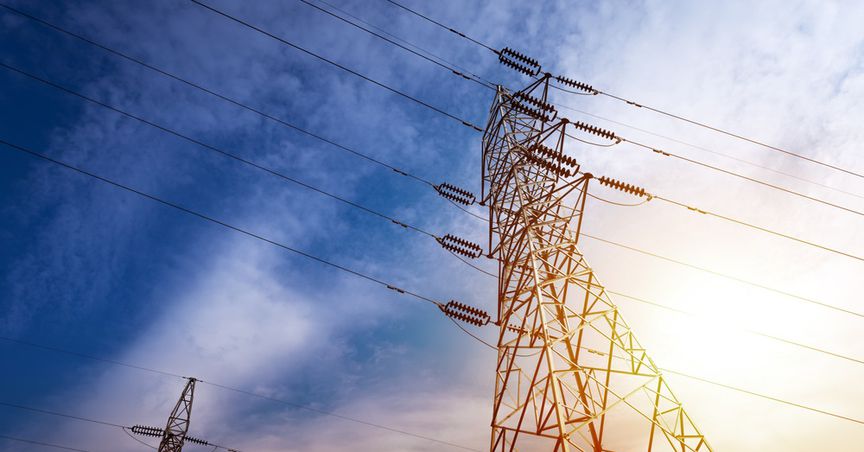Summary
- Bulb Energy plans to raise the price for its electricity supply to the British consumers.
- The company offers 100 per cent renewable electricity and gas to its members. It would charge an additional £53 per year to its consumers from October 2020.
- The decision to increase the price was due to recent up scaling of the wholesale energy markets and cost of supporting government’s policies.
- Bulb Energy said that the increased price would be £75 lesser than the Ofgem’s recent price cap on energy.
Bulb Energy Limited announced on 14 September 2020 to raise the price for its electricity supply to the British consumers. The energy supplier would charge an additional £53 per year to its consumers from October 2020. The company said that the decision to increase the price was due to a recent up scaling of wholesale energy markets and costs related to support the government’s policies.
The price rise from Bulb Energy is seen against the general trend of cost effective energy deals in the UK market with several companies reducing the prices to attract more customers. It raises a question if the existing members of the supplier would switch to other cost effective energy providers or remain with Bulb Energy to be a part of the green energy drive. We present the key details on the announcements made by Bulb Energy, views from experts on rise in energy prices, and some recent investments made by SSE plc and Jersey Electricity plc in the renewable energy segment.
Second price hike in a year
The latest rise in power bill by Bulb Energy would be the second price hike by the energy company in one year time as it raised the power prices by £22 per year in March 2020. During the lockdown period when the country noted a considerable fall in demand for electricity, the company raised its prices citing the reasons of cost of supporting the UK government’s policies of renewable energy projects and network upgrades.
The energy supplier informed that even after the rise, its prices would be cheaper in comparison with the default deals offered by other key suppliers. Bulb said that the raised prices would be £75 lesser than the Office of Gas and Electricity Market’s (Ofgem) cap on energy prices. Ofgem is the UK government’s regulator for the electricity and downstream natural gas markets in the UK and supports the Gas and Electricity Markets Authority (GEMA).
In early August 2020, Ofgem lowered the price cap for 11 million UK households. The regulator had said that beginning from October 2020, the limit on the default dual-fuel energy tariffs would reduce by £84. This decrease would be from an average of £1,126 per year to a record low of £1,042. The changed cap on energy bills for customers who have pre-paid energy meters would decrease by an average of £94 per year, reducing the overall cap to £1,070 for a year. It is to be noted that the regulator had decreased the cap on prices to mirror the weaker energy market prices over 2019 that significantly cuts the cost incurred by the energy companies to supply power to homes.
However, Bulb was of the view that its recoveries over the past five months suggested that the company was left with no other option to increase the bills. It said that the cost of supplying power to the UK homes had mounted and the company resisted for a long period. The increased bill would impact the supplier’s electricity-only, dual fuel, and prepayment customers. The company reiterated that it is committed to fair pricing and transparency.
Also read: Will Higher Energy Bills During Winters Support Electricity Suppliers?
Quick look at the Bulb Energy announcement
Bulb Energy is a London-based energy company that offers 100 per cent renewable electricity from solar, wind, and hydro sources as well as from carbon-neutral gas. Bulb energy sources a portion of its gas mix from renewable sources such as food or farm waste. The company offsets the emissions from the gas it supplies by supporting carbon reduction projects across the globe. It is one of the biggest buyers of green gas for homes in Britain. Besides buying energy directly from the power generators, Bulb Energy buys electricity from the wholesale market as well.
In late 2018, hedge fund backers at Magnetar Capital and DST Global valued Bulb Energy at around £350 million. However, industry insiders felt that the company’s upcoming fundraising would target new tech investors from the United States (US). The energy supplier said that it is adequately-funded and could support its present operations as well as future growth plans.
Recent investment by SSE and Jersey Electricity in renewables
Many companies have geared towards the green energy drive and have plans in place to make significant capital expenditure in this regard, despite the adverse impacts brought in by the coronavirus-led crisis.
In the first week of September 2020, SSE plc (LON: SSE), a leading UK company that emphasises on climate change informed that it would invest £7.5 billion in the next five years that suggests around £4m every day on low carbon infrastructure which would power all parts of Britain for coming decades. The draft business plan at SSE for transmission of electricity network that it operates in the north of Scotland was stakeholder-led and structured to deliver the required capital resources needed to deliver net zero.
The British government also wanted to encourage investment and sounded the starting gun with a £3 billion package to improve energy efficiency and cut household carbon emissions in early July 2020. SSE expected that the upcoming Energy White Paper and National Infrastructure Strategy would build on this.
Also read: Ovo Energy Inherits Fine From SSE; A Closer Look At SSE’s Financial Health
Jersey Electricity plc (LON:JEL) has partnered with Woodside Farm Limited, a company that sells and exports a wide variety of crops and provides freight services between Jersey and the UK, to produce local solar power. Jersey has received a 25-year lease from the Royal Court to install and operate a solar photo-voltaic (PV) array. This would be the largest in the Channel Islands on the roof of a warehouse situated at the Trinity farm. The project is expected to be operational in October 2020 and is likely to produce approximately 270,000 units per year would be sufficient to power 37 Jersey homes that consumes an average of 7,300 units (Kilo watts per hour) on an annual basis.
This project would be the third solar array that Jersey Electric would own and operate to feed directly on to the grid and provide all Islanders a portion of the renewable energy that would be produced locally. The other two projects by the energy company include the 81 kilowatt-peak (kWp) array installed in 2019 and the 47kWp array opened in April 2020. Jersey Electricity is a vertically integrated power utility company that is involved in the importation, production, transmission, and distribution of electricity. It is the only supplier of electricity in Jersey, Channel Islands.
Also read: Two Energy Stocks Trending on LSE – Egdon Resources PLC & Petroneft Resources PLC
Pandemic related subsidy costs
It is to be informed that the energy market prices started to rise since falling to record lows during April 2020. This was the period of the coronavirus-induced lockdown in the UK that led to a significant drop in demand for electricity in the UK. Many experts viewed that the coronavirus-induced lockdown that slumped the demand for energy have significantly raised the costs to support subsidies for renewable energy.
The costs have moved up both in terms of megawatt hour as well as overall likely spend for 2020-2021 period. For this period, the rise in the total cost of renewable subsidy schemes due to the lockdown could be above £10 billion, according to estimates presented by the experts. The cost per megawatt hour (MWH) impact on power suppliers is likely to be around 5.4 per cent more and could reach £40/MWH overall.
Many experts pointed out that the cost of renewable subsidy schemes in addition to other policy considerations presently account for more than 30 per cent of the standard electricity bill. They stressed that these factors resulting in a rise in costs would be recover mainly from the consumer bills.
The fall in energy demand due to the pandemic has reduced the price for wholesale energy prices, resulting in a rise in per unit costs of energy policy subsidies. Many experts additionally highlighted that the impacts are likely to be more in the first two quarters of the year or April-September 2020 and would reduce in the second half of 2020.
It is to be noted that many steps have been brought in to buffer domestic suppliers and consumers from this increase in costs. Many experts were of the view that lower wholesale prices offset higher policy costs on the electricity bill to a certain extent. But, as the domestic customers who have been observed to consume more power during the lockdown period due to stay at home orders, so it is likely that they would be paying an increased chunk of the rise in costs.
Conclusion
The recent decision by Bulb Energy to increase the energy prices for its members was based on a rise in wholesale energy costs and the network cost that the company needs to incur to keep the energy moving, in addition to policy related costs in the renewable energy sector. On its part, the UK government is trying that consumers face the coronavirus-led crisis without having to be burdened with a rise in power bills, by putting a price cap on the energy bill.





